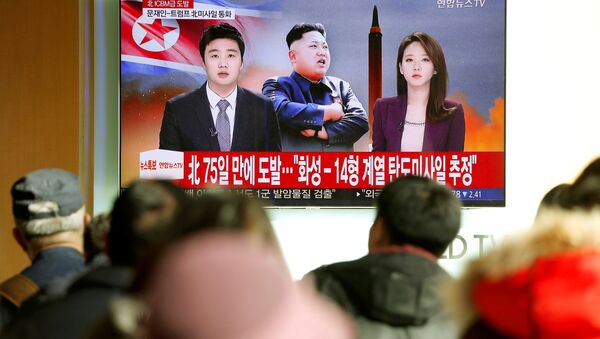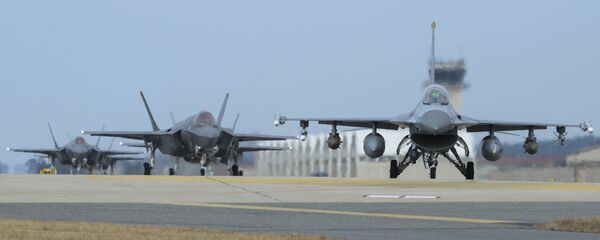The key component of US President Donald Trump’s approach to North Korea is diplomatic isolation, in addition to the already existing economic pressure over the reclusive Asian nation. The White House expects the initiative can help achieve two goals.
It is aimed at punishing the North Korean leadership for the development of a nuclear and missile arsenal. US officials believe that international isolation would prompt the North Korean government to negotiate.
"We do know they care a lot about their international reputation," Mark Tokola, a former No. 2 at the US Embassy in South Korea, told the Associated Press.
In November, Pyongyang tested the Hwasong-15 intercontinental ballistic missile (ICBM). The test reportedly failed but an operational Hwasong-15 is believed to have a range of over 13,000 kilometers and could strike anywhere in the US. Pyongyang commented on the launch, stating that it has completed its "nuclear force" with the development of the Hwasong-15 ICBM.
"Today, we call on all nations to cut off all ties with North Korea. In addition to fully implementing all UN sanctions all countries should severe diplomatic relations with North Korea and limit military, scientific, technical or commercial cooperation," US Envoy to the UN Nikki Haley said after the launch.
READ MORE: North Korea Slams US 'Nuclear Blackmail' During Talks With UN
Despite the fact that the Trump administration has made some progress in exercising diplomatic pressure over the North, Pyongyang is still unlikely to be completely isolated in the international arena.
Earlier this week, the North hosted a visit by UN Under-Secretary-General for Political Affairs Jeffrey Feltman, who became the first UN top representative to visit the country since 2010. Feltman spent five days in North Korea and had talks with the country’s foreign minister.
North Korea also maintains a friendly relationship with Cuba, another nation under US sanctions for years. In late November, the top North Korean diplomat Ri Yong-Ho visited Havana and met Cuban President Raul Castro.
The second part of Trump’s policy on the North Korean crisis presumes "maximum pressure and engagement." According to Suzanne DiMaggio at the New America think tank, Washington is not completely focused on pressure while "this is probably as good a time as any to try to pivot to engagement."





